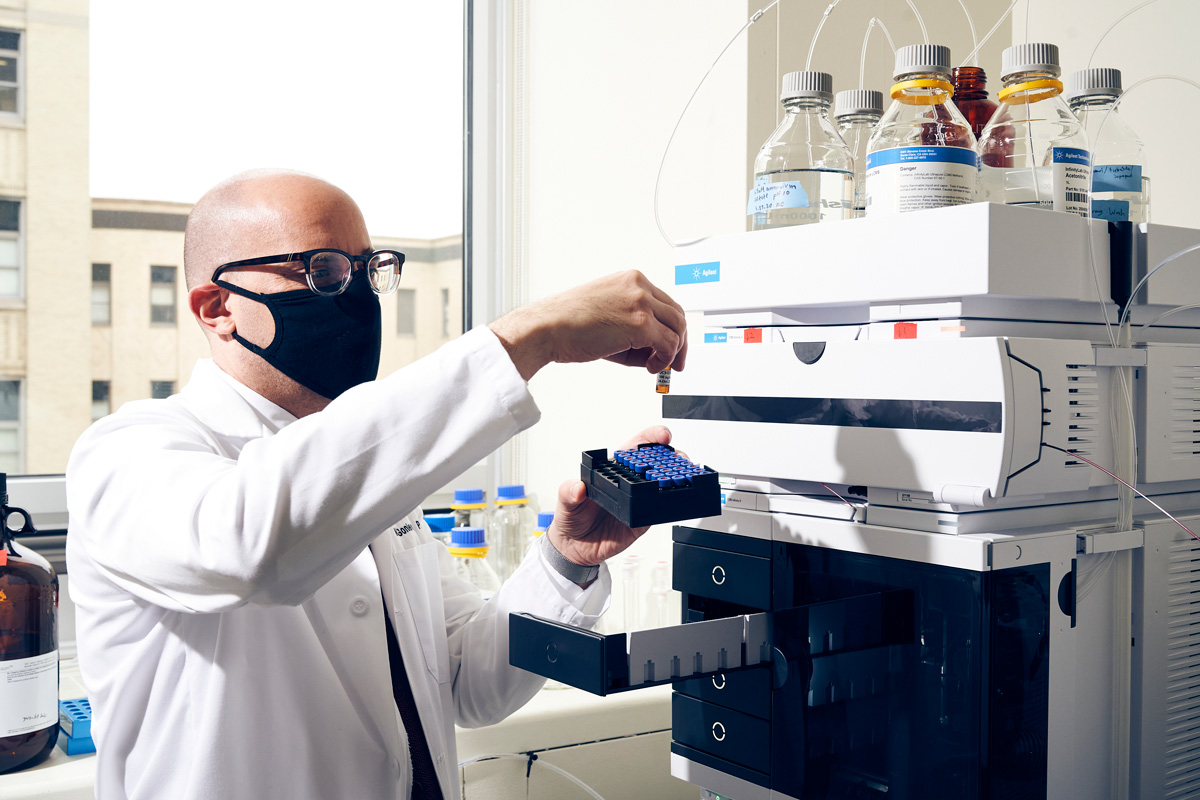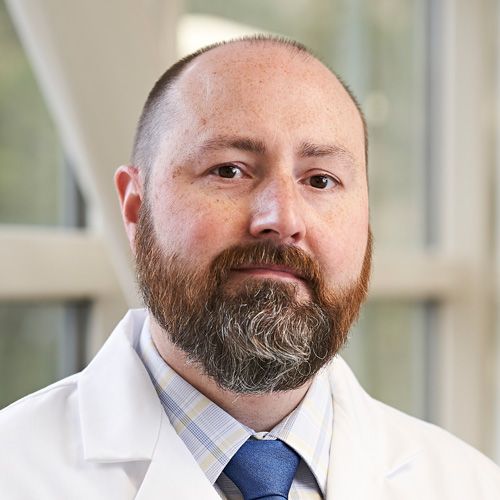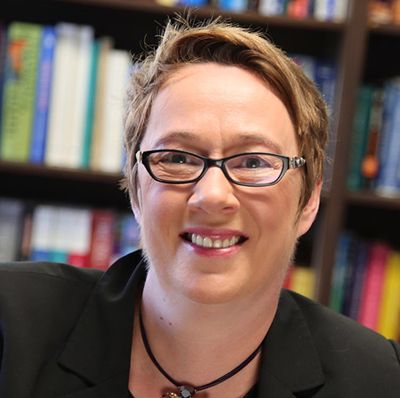Understanding cancer risks and outcomes
Investigate the risk factors for cancer to improve prevention efforts and risk reduction. Identify markers of early detection and diagnosis. Study and work with high-risk populations. Engage in intervention studies to prevent cancer development and improve prognosis. Research the role of gene-environment interactions and molecular epidemiology.
If you’re ready to make an immediate impact in oncology research, the Cancer Prevention PhD track at Roswell Park gives you both the focus and the freedom to follow your scientific interests.
The Cancer Prevention PhD allows for research programs that combines population-based research and laboratory-based research.
Cancer prevention is a mandated research area for all NCI-designated comprehensive cancer centers like Roswell Park, and the depth and breadth of our research is unmatched.
Track highlights
Most students will be paired with a primary mentor during the first year in the program. You’ll spend the first two years taking the required didactic courses, including cancer science, research methods, statistics, ethics and basic science. You’ll also have the opportunity to initiate or contribute to research projects.
During the next 2-3 years, you’ll work full time on your dissertation research, with training and mentoring from experienced and renowned research scientists. All faculty members are well-published and excel in teaching; many hold senior leadership positions as well.
Roswell Park offers numerous onsite seminars and education programs, including:
- Faculty Forum: Lectures given by internationally acclaimed cancer researchers from around the country
- Population Sciences Grand Rounds: Advances in cancer prevention and population health research presented by nationally and internationally renowned invited outside speakers and Roswell Park staff
- Journal Club: High impact publications will be discussed by faculty, postdoctoral fellows and students in a strong, interactive learning environment.
- Work-in Progress Meetings: New or on-going research concepts will be discussed by faculty, postdoctoral fellows and students to provide feedback on the merit and future directions of the presented work.
In addition, you can take advantage of seminars at the University of Buffalo, including Epidemiology and Environmental Health, Community Health and Health Behavior, and the Research Institute on Addictions.
Research areas
A wide range of cutting-edge research is ongoing, including:
- Cancer epidemiology to identify modifiable risk and prognostic factors
- Development and application of risk and prognostic biomarkers
- Intervention trials for cancer risk reduction
- Intervention trials for prognostic benefits
- Population-based studies of Omics (i.e., genomics, proteomics, metabolomics, epigenomics, etc.)
- Cancer survivorship
- Cancer health disparities
- Tobacco regulatory science
- Tobacco cessation
Additional information about our research can be found on our individual faculty pages.
Program of study
Fall (19 credit hours):
- Integrated Cancer Sciences I/II (RPG 501/502) (4 credit hours each = 8 credit hours) (Mon-Fri 8:30-10:30 a.m.)
- Biostatistics for Cancer Sciences (RPG 519) (4 credit hours) (Tues, Thurs, 12-1:30 p.m.)
- OR Statistical Analysis I (STA 527)
- Responsible Conduct of Research (RPG 504) (1 credit hour) (Tues, 3-4 p.m.)
- First-Year Student Journal Club (RPG 601) (2 credit hours) (Fri, 1-3 p.m.)
- Introduction to Epidemiology (EEH 500) (3 credit hours) (if no prior epi coursework)
- Independent Study (RPG 514) (1-4 credit hours)
Spring (19 credit hours):
- Integrated Cancer Sciences III (RPG 503) (4 credit hours) (Tue, Thur, Fri, 4-5 p.m.)
- Cancer Epidemiology (RPG 585) (3 credit hours)
- Statistical Analysis II (STA 528) (4 credit hours)
- Advanced Methodology (EEH 502) (3 credit hours)
- Graduate Seminar (RPG 584) (1 credit hour)
- Research (RPG 606) (4 credit hours)
Fall (19 credit hours):
- Statistical Analysis III (STA 529) (4 credit hours)
- Advanced Epidemiological Study Design (2 credit hours) (EEH 601)
- Basics of Grantsmanship I (RPG 603) (2 credit) (Wed, 9 a.m.-12 p.m.)
- Electives (2-7 credit hours)
- Graduate Seminar (RPG 583) (1 credit hour)
- Research (RPG 608) (3-8 credit hours)
Spring (9 credit hours depending on electives):
- Elective(s) (3-7 credit hours)
- Graduate Seminar (RPG 584) (1 credit hour)
- Research (RPG 608) (1-5 credit hours)
Preliminary Exam – cycle 2 over the summer.
66 credits completed after 4 semesters (adjust research credits according to electives taken) with 6 more to go for the remaining 6 semesters
Fall:
- Research (RPG 608) (1 credit hour)
- Graduate Seminar (non-registered)
Spring:
- Research (RPG 608) (1 credit hour)
- Graduate Seminar (non-registered)
Listed below are common electives chosen by students in the track. Other graduate-level courses may also be used as electives with permission of the Director of Graduate Studies.
Stats and Methods:
EEH 602 Theory and Implementation of Clinical Trials – 2 credits Fall
EEH 673 Molecular Epidemiology – 3 credits, Fall
EEH 611 Analysis of Health Data – 4 credits Spring
Cancer prevention-relevant topics:
EEH 550 Environmental Health – 3 credits, Spring
CHB 525 Health Equity – 3 credits, Fall
CHB 528/RPG 582 Tobacco Control – 3 credits, Spring
CHB 529 Cannabis – 3 credits, Spring
Degree requirements
After completing prescribed courses, doctoral students are expected to pursue research relevant to their theses. A minimum 72 credit hours is required, which may include applicable master’s degree credits. Research leading to a doctoral degree requires at least two years of full-time research in addition to fulfilling the course requirements.
Examinations
During the first two years, candidates are expected to take examinations as required in their individual courses. At the end of the second year, students are required to pass a separate qualifying examination, which consists of written and oral sections. A written dissertation and oral defense of the thesis is required for graduation.
Contact information
For more information on the Cancer Prevention Ph.D. Track at Roswell Park, connect with:
Gregory L. Ciupak, MPH
Department Administrator
716-845-8863
Gregory.Ciupak@RoswellPark.org
Cancer Prevention Track
Roswell Park Graduate Division
Roswell Park Comprehensive Cancer Center
Elm and Carlton Streets
Buffalo, New York 14263


